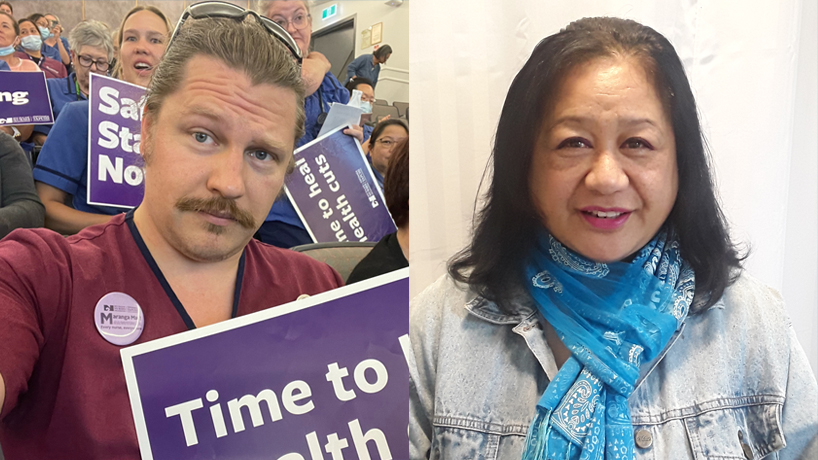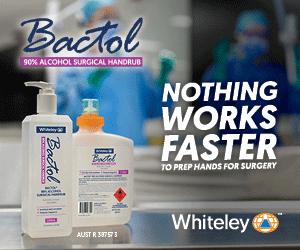“We do not want to make the nurse feel threatened,” co-chair Marita Ansin-Johnson told Kaitiaki. “This whole campaign is to be a teamwork environment. We just want clarification of where we are in the team — and how far we can go.”
‘We finally stood up — and this time there were more voices to be heard, and those who were speaking up can’t really be quieted.’
They are seeking clearer definition and practice scope for the role of kaiāwhina (an inclusive term for health-care assistants/HCAs and hospital aides), along with pathways to allow training and career progression should they wish, and pay that recognises extra skills.
The “HCA leadership group” grew out of a breakfast meeting last September with NZNO — Tōpūtanga Tapuhi Kaitiaki o Aotearoa kaiwhakahaere Kerri Nuku, president Anne Daniels and chief executive Paul Goulter shortly before a fired up Ansin-Johnson unexpectedly took the NZNO conference stage with a call to respect caregivers more.
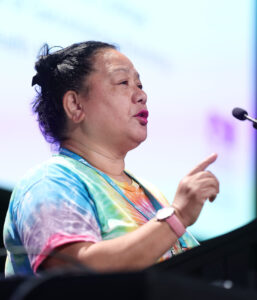
“Now I’m standing in front of you guys, who I respect, who I’ve learned a lot from — but please can you start respecting us? We are human,” she said at the time, to loud applause.
That spontaneous kōrero to a room full of nurses was the result of frustration after years of following the rules, she said. “We went through the channels of writing letters and doing what we were supposed to do — but nobody was listening.”
Co-chair, Hamilton HCA Michael Deibert, said that having found their voice after so long, caregivers would not now give up on their aims.
“We finally stood up — and this time there were more voices to be heard, and those who were speaking up can’t really be quieted.”
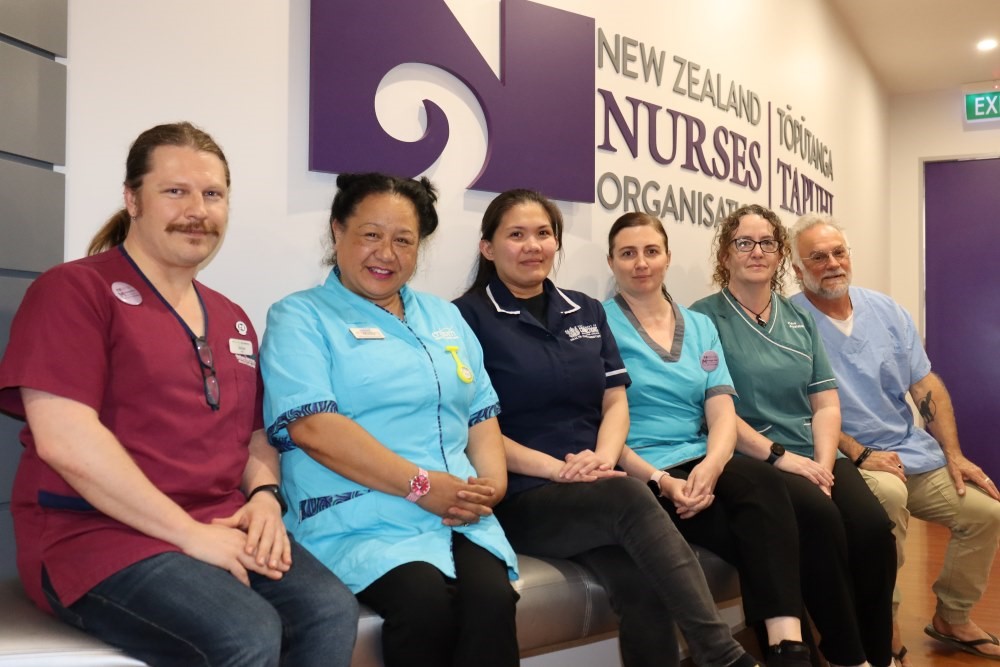
Now the group has a core committee of about 10 across sectors and is connected to dozens more kaiāwhina around the country.
The pair are interim leaders until next year, when full elections will be held for a bicultural leadership model with Te Rūnanga members.
The idea is to set up and connect local HCA groups around the country, aiming to capture as much as possible of Aotearoa’s caregiving workforce — estimated at around 100,000 and growing, by Te Whatu Ora in its 2023 workforce plan.
‘In one ward I couldn’t even get an ECG off a patient — but if I went down to ED, I could do that same job.’
“Our core goal is get every single workplace . . . to have either their own work group or a strong connection to a local or employer-based [one]. That then will connect to the bigger campaign, because that’s how we’ll communicate and keep together and unified,” Deibert said.
Purpose: To develop and implement, within the New Zealand health sector, a complementary model of teamwork that ensures proper career pathways for HCAs and other non-nurse roles by means of recognised education and training, qualifications, reward and recognition and career pathways.
The long term goals are:
- To establish a clearly-defined national kaiāwhina role, along with a pathway that aligns with the EN/RN pathways, allowing HCAs to progress, including into nursing, if they wish.
- To create a level 4 hospital HCA/kaiāwhina course with work-based learning organisation CareerForce.
- To work with the Nursing Council to establish a scope of practice and clear job description for kaiāwhina.
- To be paid for any extra tasks and training.
However, the immediate priority was to push for better training and pay at Te Whatu Ora as part of upcoming 2024/25 collective bargaining, Deibert said. The group was also keen to see more support for the aged care kaiāwhina workforce, which tended to be fragmented across unions.
HCA role ‘variable’ and inconsistent
Deibert says caregiving work varies wildly from place to place. In aged care, HCAs can give medication, but cannot do so in hospitals. In primary care, some do vaccinations. Sometimes the role varies even within hospitals, he said.
“In one ward I couldn’t even get an ECG [reading] off a patient — but if I went down to ED, I could do that same job.”
‘We didn’t ask for all this extra work . . . the employer is pushing them onto us.’
A scope would protect kaiāwhina from working beyond their skills and capabilities, which puts both them and patients at risk, he said.
“We didn’t ask for all this extra work . . . the employer is pushing them onto us. We’re trying to push back and say ‘hold up, we don’t mind learning more, but we need to be trained adequately so it’s helpful to the nurses’.”
This might include training for smaller jobs, such as monitoring patients’ vital signs during a hospital transfer — currently limited to nurses only — which would allow kaiāwhina to relieve a team’s workload more, Deibert said.
“It gives us a bit more knowledge and somewhere to go, and helps the nurses as they’re not having to leave the ward to ferry that patient, who probably doesn’t need full nursing care.”
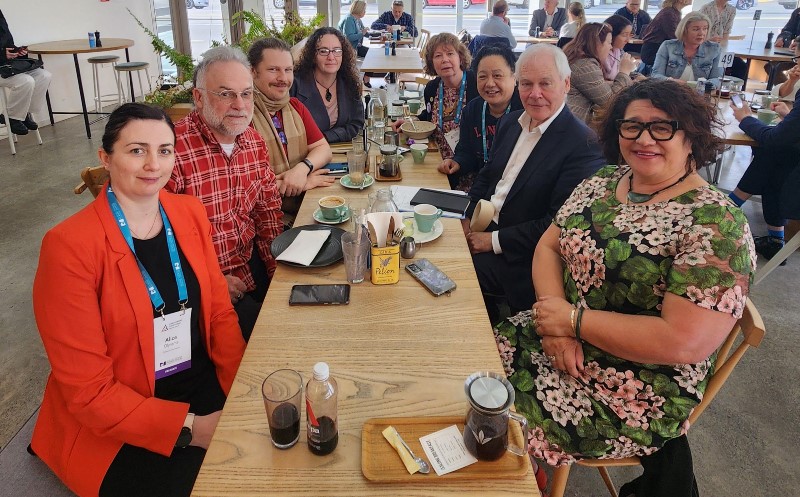
‘I know a lot of nurses – especially the ENs – are afraid of us coming into their territory.’
But it would not veer into the territory of enrolled nurses (ENs), whose scope was much broader, including giving medication, he said.
“I know a lot of nurses — especially the ENs — are afraid of us coming into their territory,” Deibert said. But kaiāwhina only wanted to be a safe, effective and complementary member of the wider nursing team.
“We’re all part of that nursing team – but right now we hit a road block when we get to a certain point and we have to start over if we want to go to the clinical side, so we’re trying to bridge that gap a bit,” Deibert said.
“It’s some of the smaller things – defining what is our job, but a bit more than a job description, because they vary from hospital to hospital, ward to ward, sector to sector.”
It would also ensure kaiāwhina were given adequate training and pay for any expanded role — unlike now, where they were asked to do extra jobs without such recognition.
‘Naturally enough, HCAs and non-nurses feel disrespected and put-upon, nurses often feel threatened, and patient care suffers.’
A regulated role?
Deibert says while he believed there was room for more regulation of caregiving, much of the role, such as restocking, did not require it — and he acknowledged it could be a thorny area with nurses. “Maybe a bit more [regulation] than what we have, but not the full regulation of the EN or the RN.”
The group was considering something like Te Whatu Ora’s HCA merit steps for its HCAs and theatre support assistants, which allows them to upskill and be paid accordingly.
“We don’t have to push everyone, but are providing a way to advance and a career path [for those who want it],” Deibert said.
‘Clear and complementary’
NZNO chief executive Paul Goulter said that, along with clear pathways, a complementary role for the kaiāwhina workforce was needed, rather than a role made up of substituting for tasks done by nurses as currently existed.
“HCAs and non-nurses often feel disrespected and put-upon, nurses often feel threatened, and patient care suffers as the overseas research also shows.”
NZNO’s work on the future role of the nurse was inextricably linked with defining the role of HCAs and the kaiāwhina workforce, he said. They should complement each other.
Law change?
The Nursing Council chief executive Catherine Byrne said the Health Practitioners Competence Assurance Act 2003 authorised the Council to regulate the practice of nursing only. That meant that the Council’s regulatory jurisdiction extended to enrolled, registered and nurse practitioner scopes.
The Act may require amendment to allow regulation of HCAs, she said.
“The Council welcomes initiatives that support the safest care to the public, but it needs to be recognised that regulating HCAs may incur large costs to the workforce and employers.”
The Council wished HCAs all the best in their endeavours, she said via email.
Any HCA/kaiāwhina leaders interested in setting up a group in their workplace can contact Michael Deibert: [email protected].


